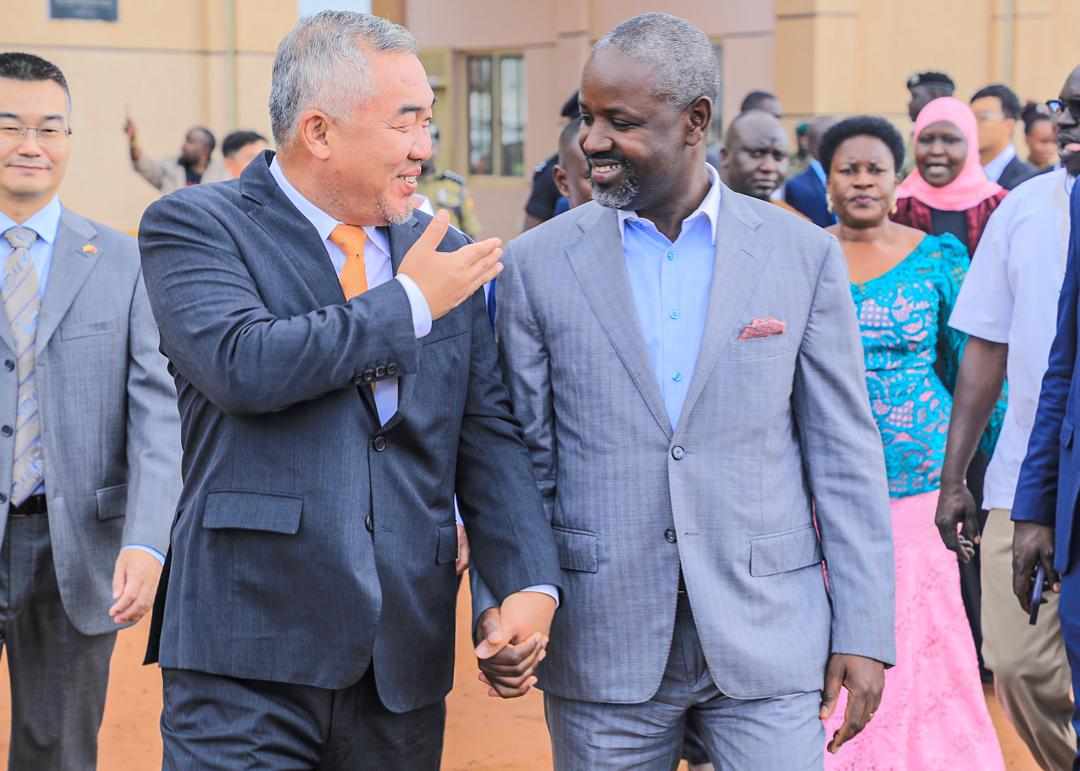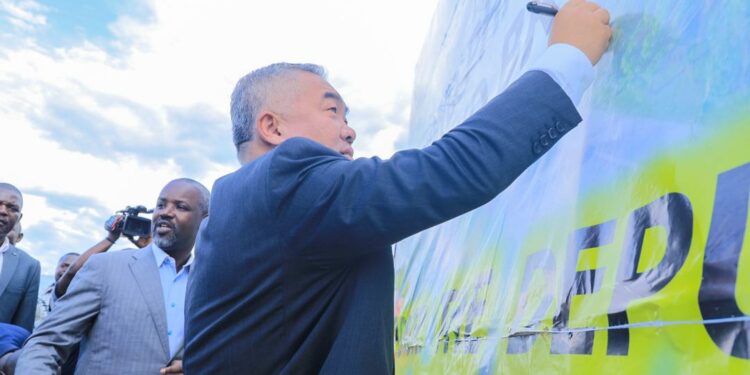In an exclusive interview with Watchdog Uganda, Paul Zhang, the visionary Chairman of TianTang Group and founder of the Sino-Uganda Mbale Industrial Park, shared his journey, aspirations, and unwavering commitment to Uganda’s industrial and economic growth.
Zhang, who has lived in Uganda for over 20 years, detailed his plans to help transform the country from an agricultural-based economy to an industrial hub for East Africa. His dream is to create over 40,000 Jobs.
Zhang opened up about his enduring mission: “I’ve been in Uganda for more than two decades, and my dream has always been to help create a significant industrial park that will provide over 40,000 jobs for Uganda’s youth. So far, we’ve created around 7,000 jobs in the Mbale Industrial Park alone.” By 2025, he aims to double this number, expanding the park to over 100 factories, and generating over 15,000 jobs.
Beyond job creation, Zhang envisions his efforts at Mbale Industrial Park fueling Uganda’s export sector, enabling the country to bring in valuable foreign exchange and reduce its reliance on imports. “This will bring more dollars into Uganda, helping stabilise the local currency while creating an industrial backbone for the region,” Zhang explained. He emphasised the broader vision: “With more job creation and exports, we hope to see Uganda saving on foreign exchange and, ultimately, transitioning from an agricultural economy to an industrialized nation.”
According to Zhang, his first factory in Mbalala in 2009 was a stepping stone. “When Chinese investors saw my success in Uganda, it sparked trust. They saw my steel and mattress factories and believed in the potential.” Over 40 Chinese investors followed Zhang’s lead, bringing industries to Mukono and creating over 50,000 jobs. “Today, Mbale Industrial Park is home to 51 factories and employs around 7,000 people,” he added. The establishment of these factories was possible, Zhang noted, because investors saw tangible proof of success in his initial ventures.
Zhang’s Journey to Uganda: A Story of Curiosity and Hope
Reflecting on his journey, Zhang recalled his initial fascination with Uganda over 20 years ago, long before the era of instant digital information. “I read about Uganda’s history, including the tough times under President Amin, and felt intrigued,” he said. “When I arrived in Kampala, I found a beautiful country with resilient, welcoming people.” He described how this experience, combined with the country’s relatively stable security, convinced him to set down roots. “My family is here, my children, nephews, and siblings because I believe in Uganda’s future,” Zhang shared.

Why Uganda?
Uganda’s strategic location as a regional trade hub remains a key factor in Zhang’s dedication to the country. “Uganda may appear small on the map, but its position at the heart of East Africa makes it an economic centre for countries like South Sudan, Tanzania, Kenya, Rwanda, and the Democratic Republic of Congo.”
The lack of local factories in neighbouring countries creates an ongoing demand for Uganda’s industrial products, strengthening Uganda’s potential as a regional supplier. “Even during the COVID-19 pandemic, Uganda’s GDP remained steady, a testament to the strength of its industrial and agricultural sectors.”
Zhang’s long-term outlook for Uganda echoes his experiences in China. He drew a parallel between China’s transformation under Deng Xiaoping and Uganda’s current potential. “Forty years ago, China was still struggling, and we often didn’t have enough to eat,” Zhang remembered. “But through industrialization and foreign investment, China rose to become the world’s second-largest economy.”
Zhang believes that Uganda, with its abundant resources forests, lakes, minerals, oil, and, above all, hardworking youth can achieve a similar transformation.
“If Uganda focuses on industrial growth, in 10 years, it could be the third-largest economy in Africa,” Zhang predicted. “The youth here are energetic, diligent, and motivated. Even after long workdays, they engage in sports, displaying remarkable vitality.”
Empowering Local Entrepreneurs
To Zhang, industrialization goes hand-in-hand with local empowerment. He revealed his efforts to train Ugandans in business and production, often providing them with small working capital and credit to start their own workshops. “In China, foreign investors trained local entrepreneurs, and we saw a rise in homegrown businesses. My goal is to replicate that here so Ugandans can eventually build their industries,” he noted.
Zhang affirmed his lifelong commitment to Uganda: “I am here not just to build factories but to see Uganda thrive. This is my home, and I want to see it prosper.”
Do you have a story in your community or an opinion to share with us: Email us at editorial@watchdoguganda.com










